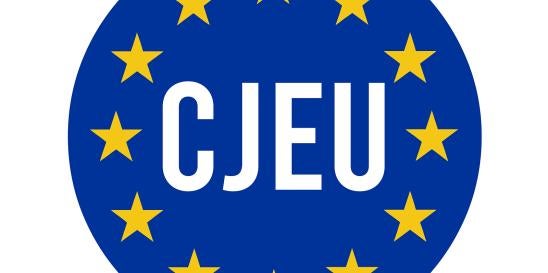On December 21, 2023, the Court of Justice of the European Union (“CJEU”) issued its judgment in the case of Krankenversicherung Nordrhein (C-667/21) in which it clarified, among other things, the rules for processing special categories of personal data (hereafter “sensitive personal data”) under Article 9 of the EU General Data Protection Regulation (“GDPR”) and the nature of the compensation owed for damages under Article 82 of the GDPR.
Background
The case related to the processing of an incapacitated employee’s personal data, including health data, by the medical service provider (“MDK”) of a health insurance fund in Germany. Under applicable law, the MDK draws up reports on the capacity of individuals insured by the health insurance fund to work. These may include reports concerning the health of MDK’s own employees. After becoming aware of the fact that a report concerning himself had been prepared, an employee of MDK sought compensation under Article 82 of the GDPR.
The CJEU’s Ruling
In its judgment, the CJEU ruled that in order to process sensitive personal data under the GDPR, there must exist both a legal basis under Article 6 of the GDPR and an applicable exception under Article 9 of the GDPR.
The CJEU also held that the rules and limitations on the processing of sensitive personal data under Article 9.2(h) (which allows processing of sensitive personal data where necessary for the purposes of preventive or occupational medicine, for the assessment of the working capacity of the employee, medical diagnosis, the provision of health or social care or treatment or the management of health or social care systems and services) and Article 9.3 of the GDPR (which provides that processing based on Article 9.2 (h) of the GDPR must be conducted by or under the responsibility of a professional subject to the obligation of professional secrecy) are also applicable to a situation in which a medical service provider processes health data of its employees in its capacity as medical service provider to assess their working capacity. In other words, the medical service provider could rely on Article 9.2 (h) of the GDPR to process its employees’ health data. The CJEU also clarified that Article 9.3 of the GDPR does not, by itself, require the controller to establish specific restrictions regarding the ability of work colleagues to access the health data of an employee.
On the interpretation of Article 82 of the GDPR, the CJEU held that the GDPR establishes a system of fault-based liability in which the controller’s fault is presumed, unless it is capable of proving that it is not in any way responsible for the event giving rise to the damage. On the nature of the compensation owed to the data subject under Article 82 of the GDPR, the CJEU clarified that it is purely compensatory, and not punitive in nature.



 i
i


